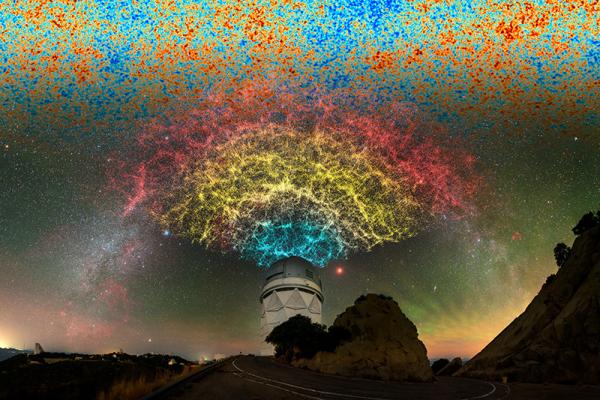
Title: Cosmology with Large Spectroscopic Surveys
Abstract:
Large scale spectroscopic surveys provide unique information that addresses many fundamental questions in physics, especially the nature of cosmic acceleration or dark energy, dark matter, and primordial inflation. In April of this year, the Dark Energy Spectroscopic Instrument (DESI) collaboration released new cosmological results based on over six million extragalactic objects with 0.1 < z < 4.2 from the first year of survey operations. The DESI collaboration has used this dataset to measure Baryon Acoustic Oscillations (BAO) to determine the transverse comoving distance and Hubble expansion rate, as well as combined these results with other datasets to explore extensions to the standard flat LCDM cosmological model and obtain constraints on the sum of neutrino masses. I will describe the design and implementation of the DESI survey and summarize the recent cosmology results, with a particular focus on the Lyman Alpha forest measurement at z > 2.1. The collaboration is presently analyzing data for over 30 million extragalactic objects from the first three years, and I will discuss the plans for this analysis and forecasts for DESI results through the end of 2028. Several future surveys that would start after 2028 are in active development, and I will conclude with a brief motivation for these new surveys and the technology development planned meet their goals.
Speaker:
Paul Martini (The Ohio State University)
